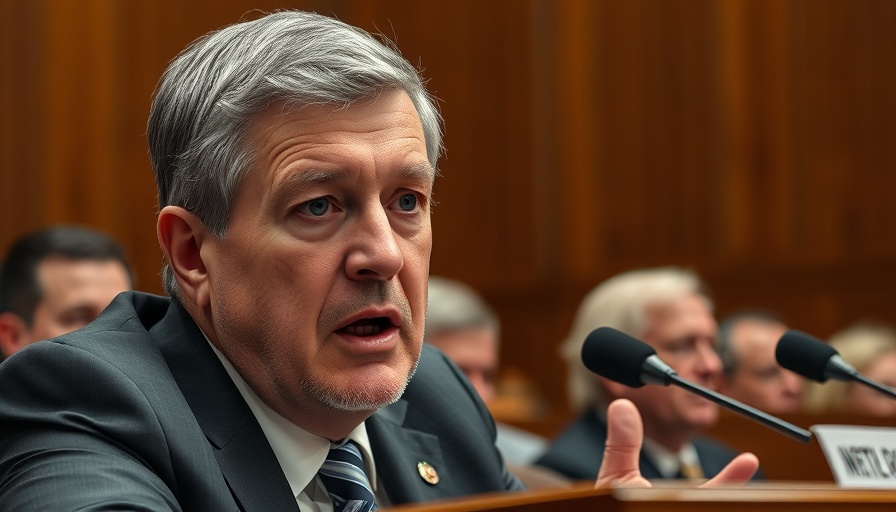
Confronting Silence: The Critical Voices of LGBTQ Representation
The recent exchange between U.S. Rep. Eric Sorensen and Defense Secretary Pete Hegseth highlights a troubling narrative regarding the representation and inclusion of LGBTQ individuals within military ranks. Sorensen, a pivotal figure as Illinois’ first openly gay congressman, articulated a stark reality: the military landscape remains unwelcoming to many, particularly young LGBTQ individuals aspiring to serve their country. His words resonate deeply within broader discussions of civil rights and equality in the armed forces.
The Significance of LGBTQ Veterans in History
When Sorensen referenced Harvey Milk, he wasn't merely invoking a historical name; he was emphasizing the struggles faced by LGBTQ individuals, especially those who have served valiantly in the military despite the formidable barriers set against them. Milk's storied past as both a military figure and a political leader not only highlights systemic injustices faced by LGBTQ veterans but raises significant questions about how we recognize all who wear the uniform.
The Cultural Impact of Hegseth's Response
Secretary Hegseth’s responses, often seen as evasive, reflect a hesitance to fully embrace discussions of diversity within the military. By dodging critical questions about Milk’s legacy, he inadvertently signals a reluctance to confront the past injustices that still echo today. This lack of acceptance can further alienate those who might consider military service, contributing to a hazardous environment for existing LGBTQ service members.
Where Do We Go From Here? The Path to Real Inclusion
Congressman Sorensen’s poignant remarks raise a crucial point: without genuine efforts towards inclusion, LGBTQ youths may turn away from military service altogether, fearing cultures of exclusion. This moment serves as a reminder that advocacy must not only persist but evolve to embrace and support all service members. Ensuring that every veteran is honored fairly will require systemic changes, from recruitment practices to leadership accountability.
Fostering a Culture of Acceptance: Why It Matters
Inclusivity in the military is not just a matter of equality; it’s essential for fostering a strong, cohesive fighting force. Diverse teams, comprising varied backgrounds, experiences, and perspectives, often outperform homogenous units. Thus, prioritizing this inclusion should not be seen merely as an obligation, but as an asset for military effectiveness and morale.
Taking Action: The Role of Legal Advocacy
For civil rights attorneys and advocates, the responsibility extends beyond mere awareness. It calls for proactive involvement in shaping policies that protect LGBTQ rights within the military framework. This advocacy is crucial in ensuring that leaders, like Secretary Hegseth, recognize and honor the contributions of every service member, regardless of sexual orientation.
By linking historical injustices to modern-day discussions, legal practitioners can aid in framing a narrative that the military’s culture must evolve to respect and celebrate diversity. This is not only essential for today’s service members but also for paving the way for future generations who might consider military service.
As we continue to address these vital issues, it becomes imperative for advocates, attorneys, and supporters to unite in crafting legislation and policies that promote inclusivity, ensuring that the sacrifices of all veterans, including LGBTQ individuals, are acknowledged and honored. Let’s be the catalyst for change in a narrative that demands compassion and respect for all who serve.
 Add Row
Add Row  Add
Add 

 Add Row
Add Row  Add Element
Add Element 




Write A Comment